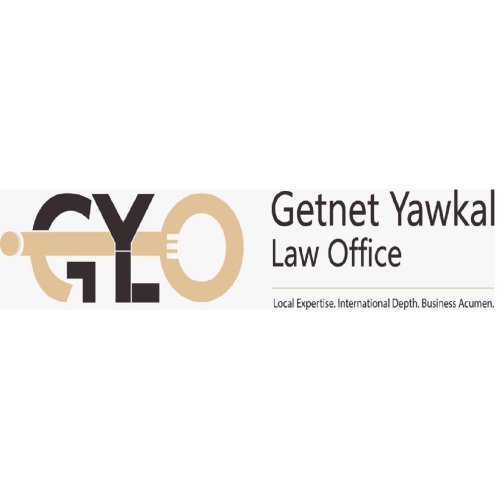Best Antitrust Lawyers in Ethiopia
Share your needs with us, get contacted by law firms.
Free. Takes 2 min.
Or refine your search by selecting a city:
List of the best lawyers in Ethiopia
About Antitrust Law in Ethiopia
Antitrust law in Ethiopia is designed to promote fair competition and prevent anti-competitive practices within the marketplace. The primary purpose is to ensure that businesses operate in a fair and transparent manner, fostering a healthy competitive environment that benefits consumers and the economy. The Ethiopian Trade Competition and Consumer Protection Authority (TCCPA) is the main regulatory body overseeing the enforcement of antitrust laws in the country. These laws cover various practices, including monopolistic behavior, cartels, mergers, and acquisition activities that might reduce competition.
Why You May Need a Lawyer
There are multiple situations where legal assistance in antitrust matters may become necessary:
- Business Mergers and Acquisitions: When companies intend to merge or acquire other businesses, they need to ensure compliance with antitrust regulations to avoid prohibitive practices.
- Accusations of Anti-competitive Practices: Businesses accused of practices such as price-fixing, market division, or abusing market dominance may require legal defense.
- Consumer Complaints: Consumers affected by anti-competitive practices may seek legal aid to ensure fair treatment and the restoration of competitive practices.
- Understanding Compliance: Legal counsel may be needed to help businesses understand and implement compliance with antitrust laws.
Local Laws Overview
Ethiopia's competition law is primarily governed by the Trade Competition and Consumer Protection Proclamation. Key points include:
- Prohibition of Anti-competitive Agreements: Agreements that significantly restrict competition, such as price-fixing or market-sharing, are illegal.
- Abuse of Dominance: Firms holding significant market power are prohibited from abusing this power to the detriment of consumers or competitors.
- Merger Control: The formation of large mergers and acquisitions can be restricted if they significantly lessen competition.
- Investigation and Enforcement: The TCCPA is empowered to investigate suspected violations and enforce compliance through penalties and corrective measures.
Frequently Asked Questions
What is the role of the TCCPA in antitrust enforcement in Ethiopia?
The TCCPA is responsible for promoting and monitoring fair trade practices, investigating violations, and enforcing competition laws to protect consumers and ensure a competitive marketplace.
How do antitrust laws impact business practices in Ethiopia?
Antitrust laws prevent businesses from engaging in unfair competitive practices, requiring them to compete fairly on pricing, quality, and innovation.
What constitutes an anti-competitive agreement?
Any collaboration between businesses that restricts competition, such as agreements on pricing, quantity, or market-sharing, can be deemed anti-competitive.
Can a foreign company be subject to Ethiopian antitrust laws?
Yes, foreign companies operating in Ethiopia or affecting the Ethiopian market are subject to Ethiopian antitrust regulations.
How can I report a violation of antitrust laws?
Suspected violations can be reported directly to the TCCPA, which will then investigate and take appropriate action.
Are there exemptions available under Ethiopian antitrust laws?
Some agreements or practices may be exempted if they can be demonstrated to contribute positively to technology, research, or sector development without restricting competition.
What are the penalties for violating antitrust laws in Ethiopia?
Penalties may include fines, business restrictions, orders to cease offending practices, and more, depending on the severity of the violation.
How do antitrust laws affect mergers and acquisitions?
Significant mergers and acquisitions are subject to TCCPA evaluation to ensure they don’t substantially decrease market competition.
Can a consumer file a lawsuit for antitrust violations?
Yes, consumers affected by anti-competitive practices have the right to seek legal recourse and compensation for damages suffered.
What is the process for compliance with Ethiopian antitrust laws?
Businesses should engage in regular legal reviews and consult with legal experts to ensure their practices are aligned with current antitrust regulations.
Additional Resources
For further information and assistance, the following resources can be invaluable:
- Ethiopian Trade Competition and Consumer Protection Authority: The official body for competition regulation.
- Legal Firms Specializing in Antitrust Law: Engaging with law firms that focus on competition law can provide specific and expert guidance.
- Academic Institutions and Publications: Universities and legal journals frequently publish analysis and commentary on developments in competition law.
Next Steps
If you suspect a violation of antitrust laws or require assistance with compliance or any related issue, consider taking the following steps:
- Consult a Legal Expert: Contact a lawyer specializing in antitrust law for a detailed analysis of your case or situation.
- Gather Evidence: Collect all relevant documentation and information that supports your concerns or compliance efforts.
- File a Complaint: If necessary, file a formal complaint with the appropriate authority, such as the TCCPA.
- Stay Informed: Continuously update your knowledge on local changes and trends in antitrust law to ensure ongoing compliance.
Lawzana helps you find the best lawyers and law firms in Ethiopia through a curated and pre-screened list of qualified legal professionals. Our platform offers rankings and detailed profiles of attorneys and law firms, allowing you to compare based on practice areas, including Antitrust, experience, and client feedback.
Each profile includes a description of the firm's areas of practice, client reviews, team members and partners, year of establishment, spoken languages, office locations, contact information, social media presence, and any published articles or resources. Most firms on our platform speak English and are experienced in both local and international legal matters.
Get a quote from top-rated law firms in Ethiopia — quickly, securely, and without unnecessary hassle.
Disclaimer:
The information provided on this page is for general informational purposes only and does not constitute legal advice. While we strive to ensure the accuracy and relevance of the content, legal information may change over time, and interpretations of the law can vary. You should always consult with a qualified legal professional for advice specific to your situation.
We disclaim all liability for actions taken or not taken based on the content of this page. If you believe any information is incorrect or outdated, please contact us, and we will review and update it where appropriate.
Browse antitrust law firms by city in Ethiopia
Refine your search by selecting a city.









